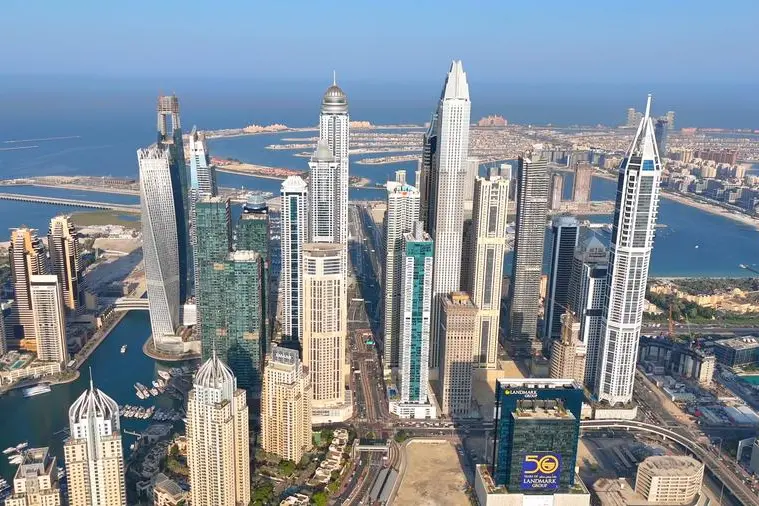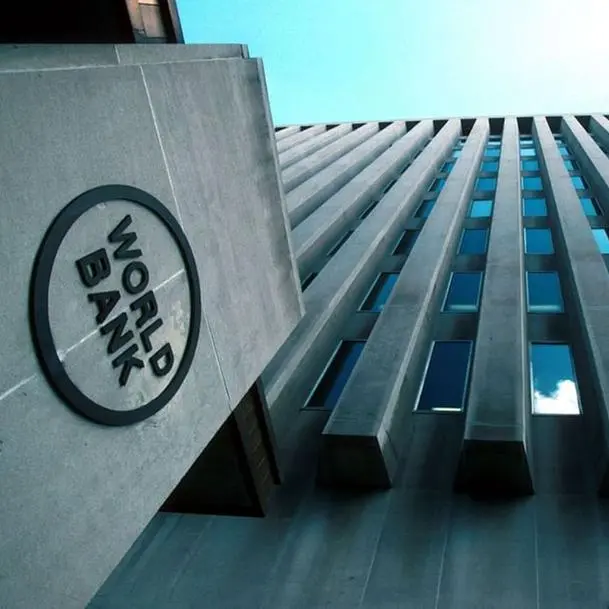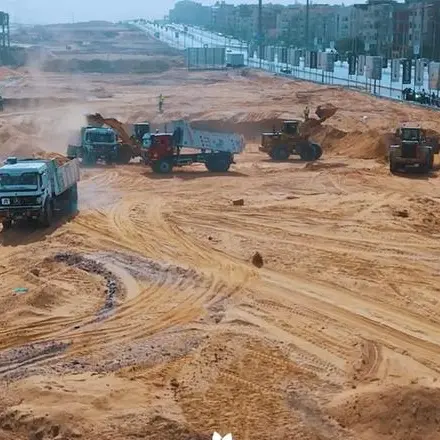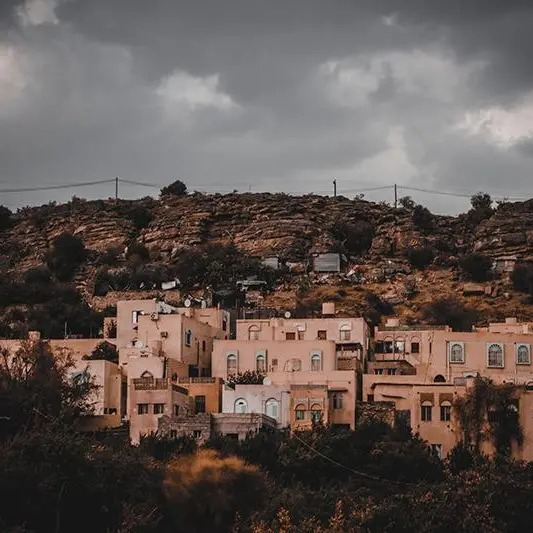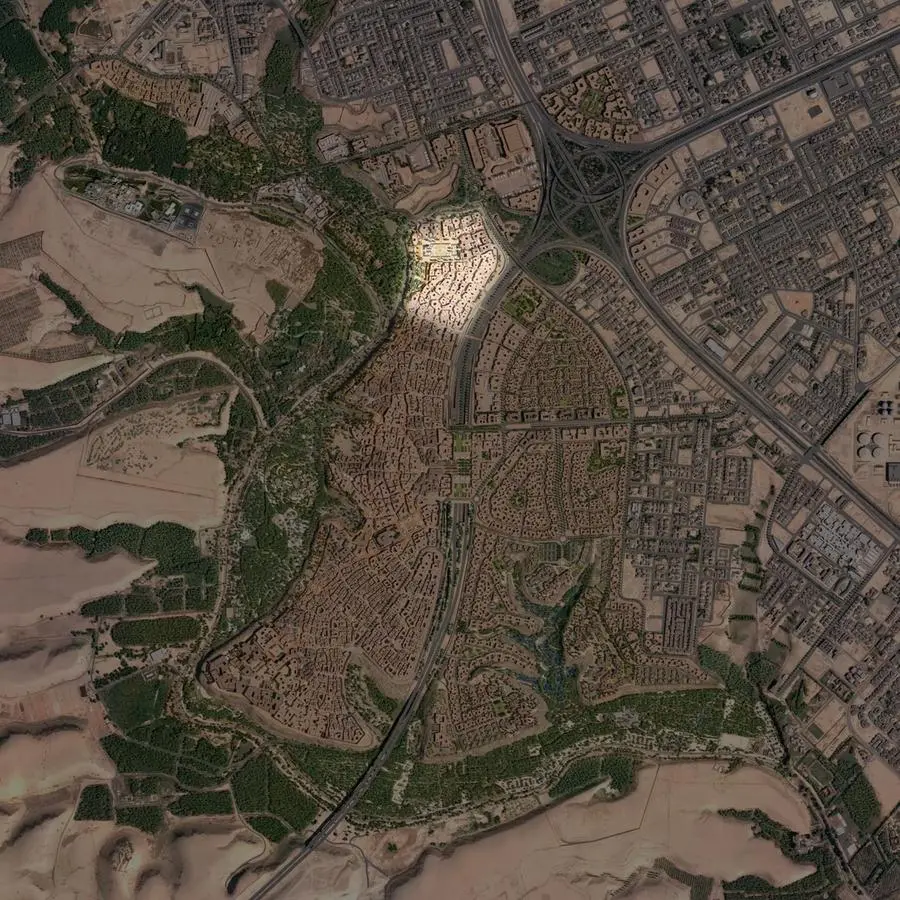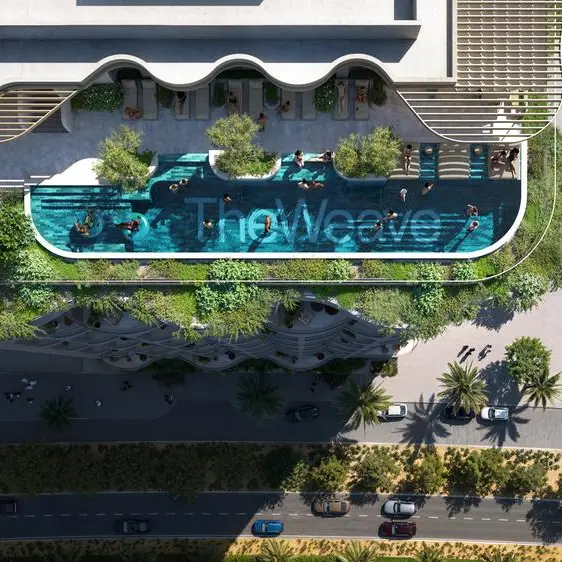PHOTO
In the past six months, the Dubai real estate market has seen substantial growth, largely driven by foreign investment.
Yogesh Bulchandani, Founder of Sunrise Capital, highlighted that the market is on track for a 15 percent expansion this year, thanks to significant investments from Europe and the UK.
“This shows the city’s continued allure in international real estate, promising robust returns for discerning investors – particularly when set against ongoing global economic and political uncertainties,” he said.
Ramjee Iyer, Chairman and Managing Director of Acube Developments agreed that foreign investment has been a major catalyst for the Dubai real estate market's recent success.
“It has clearly had a very strong impact, with recent Deloitte stats showing Dubai’s real estate investment sector saw a 55 percent increase in the first half, reaching nearly AED 412 billion – with foreign direct investors making up a significant 42 percent of these investors,” he said.
Iyer said foreign investors are often looking for high-value properties and are willing to pay a premium for prime locations and luxury amenities.
Both leaders anticipate a steady rise in prices in the coming months driven by strong demand from both local and international investors.
“I think the luxury segment could see significant price increases due to limited supply and high demand,” said Iyer.
Smart and sustainable
Bulchandani added that several high-profile developments are nearing completion, which will likely attract significant interest from investors and end-users alike.
He emphasised that Dubai's commitment to becoming one of the smartest cities in the world, as outlined in the Dubai Economic Agenda D33, is a significant attraction for investors
“The increasing adoption of smart home technologies has led to properties equipped with advanced home automation systems, smart infrastructure, and enhanced security features. These innovations not only raise the standard of living but also significantly reduce energy consumption, promoting a more sustainable lifestyle,” the Sunrise Capital founder said.
Dubai's commitment to sustainability is also playing a significant role in attracting investors. Iyer highlighted that COP 28 has been a catalyst for the development of eco-friendly communities and properties in the emirate.
“The city's impressive efforts in sustainable urban planning, energy-efficient building practices, and green living have resulted in a surge of environmentally-conscious developments, attracting eco-aware buyers and investors,” he observed.
End-users or investors
While both Bulchandani and Iyer agreed that Dubai remains attractive to investors due to its high rental yields and potential for capital appreciation, they also acknowledge the importance of end-users in the market.
“People are increasingly looking to buy homes for personal use, driven by factors such as lifestyle, family needs, and long-term stability,” noted Bulchdandani.
Iyer echoed this sentiment, highlighting that a growing number of people are settling down and making Dubai their home.
Zeroing on investment opportunities for the next six months, he said with property prices across Dubai predicted to grow by 5 percent, and average rental yields set to rise by 3 percent in 2024, any property investment is likely to bring rich rewards.
“But I think mixed use developments present the best opportunities and people look for places that offer a more holistic lifestyle,” he noted.
Bulchdandani, on the other hand, is betting on the luxury real estate segment, which, he stated “Dubai does best.”
“High-end properties in areas like Palm Jumeirah, Emirates Hills, and Jumeirah Bay Island are expected to see continued demand and price appreciation, as well as ever-popular communities like JVC and Dubai Marina,” he said.
Rental yield or capital appreciation
According to Cushman & Wakefield I Core Dubai Market Update - Q2 2024 report, city-wide sales prices continue their upward trajectory for the 16th consecutive quarter with a 21 percent year-on-year and 53 percent increase compared to first quarter 2020 (pre-COVID). Meanwhile, rents rose for the 14th consecutive quarter, up by 19 percent year-on-year and 64 percent higher than first quarter 2020.
Bulchdandani said that for investors, rental yield is becoming an increasingly important factor in decision-making compared to capital appreciation as yields can be quite high, often exceeding 10 percent in certain areas.
“Additionally, rental properties can mitigate risk, generating income even during market downturns and offering a cushion against market fluctuations,” he said.
However, Iyer observed that investors are now adopting a more balanced strategy by focusing on both rental yields and capital appreciation. This approach allows them to benefit from steady income while also capitalizing on the long-term growth potential of their portfolios.
Off-plan’s appeal undiminished
Both leaders highlighted the appeal of off-plan properties, which often come with lower initial investment and attractive payment plans with potential for significant capital appreciation.
In the second quarter, off-plan transactions accounted for more than double the number of secondary market transactions, indicating that the off-plan market has a higher share of investors, according to Cushman & Wakefield I Core Dubai Market Update - Q2 2024 report.
However, both Iyer and Bulchandani cautioned that investors should be mindful of challenges such as unforeseen project delays and the importance of choosing reliable developers.
On the growing trend of developers bundling lifestyle amenities in residential projects, Iyer said they have become a big deal in a competitive market like Dubai.
“These amenities enhance the quality of life by offering features such as swimming pools, gyms, parks, and recreational areas, making properties more appealing to potential buyers and renters,” he explained.
According to Bulchandani, residents are looking for more than just a place to live; they want a community that offers a full lifestyle, including retail outlets, cafes, childcare facilities, reducing the need to travel too far for daily needs.
“Health and wellness amenities – including fitness centers, yoga studios, and running trails – are a major draw these days as we all strive for a healthy lifestyle – at Sunrise we know this is increasingly important to modern buyers,” he said.
In conclusion, the Dubai real estate market continues to thrive, driven by a combination of foreign investment, innovative developments, and a strong focus on sustainability and lifestyle amenities. Both investors and end-users have a significant role to play, ensuring a dynamic and evolving market landscape.
(Reporting by Anoop Menon; Editing by SA Kader)
Subscribe to our Projects' PULSE newsletter that brings you trustworthy news, updates and insights on project activities, developments, and partnerships across sectors in the Middle East and Africa.
